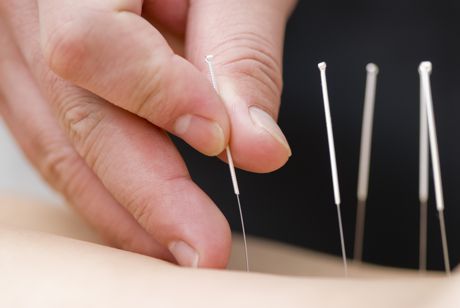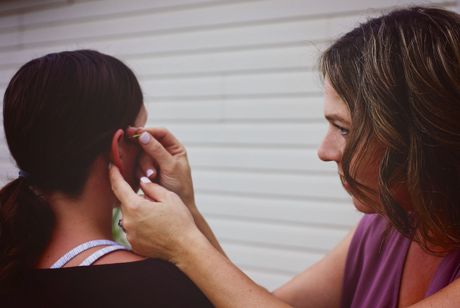Acupuncture
Acupuncture is one of the most commonly practiced modalities of Chinese Medicine. Acupuncture involves the insertion of very fine sterile needles into specific points on the body or ear in order to influence the body's Qi (life force energy). The aim is to urge the body to self-regulate and heal so that homeostasis can be achieved.
Most acupuncture sessions are covered by insurance.
Scientific explanation:
Current research has found that needle insertion activates pain fibers in the skin.
These pain fibers trigger a cascade of chemical messengers, while sending signals to the spinal cord, which relays information to the brain stem. Acupuncture can be seen as a bridge that is able to affect and integrate different systems of the body, such as the nervous, endocrine, circulatory, muscular and digestive. Because of these broad effects, acupuncture can create profound changes in the body.
Some effects of needling include:
- Pain reduction via inhibition of nociceptive fibres
- Activation of blood coagulation and immune complement systems
- Enhances blood circulation
- Restores visceral homeostasis
- Normalization of vascular tone
- Reduces contraction and spasm of the muscles
- Promotes tissue healing (immune response)
- Normalization of endocrine function
(Hypothalamus, Pituitary, LH, FSH, Adrenal, Ovary, Thyroid) - Normalization of neurotransmitters (dopamine, serotonin, adrenaline)
- Normalization of sympathetic nervous system (fight or flight)
- Normalization of parasympathetic nervous system






